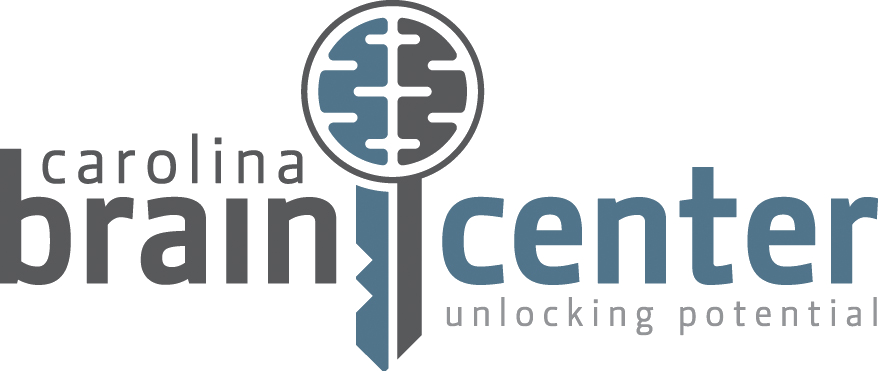As we age, our bodies undergo various changes, and so does our brain. These changes can affect everything from memory to muscle coordination and balance. However, it’s not all an inevitable decline into old age. There’s a significant amount of research that suggests our diet plays a crucial role in maintaining brain health and overall well-being as we grow older. I’m Dr. Dane, a Chiropractic Neurologist at Carolina Brain Center, and through my practice, I’ve seen firsthand the impact nutrition can have on our neurological health. This article aims to shed light on how adapting our diet as we age can support brain health, particularly for those experiencing balance issues, a common concern among older adults. Here, we’ll explore actionable nutrition tips that can help you or your loved ones maintain cognitive function and balance, ensuring a higher quality of life in later years.
Understanding Brain Health and Aging
Aging is a natural process, and with it comes the challenge of maintaining optimal brain function. Cognitive decline and balance issues are prevalent among the elderly, often leading to increased fall risk and decreased independence. However, these outcomes are not solely the result of aging; they’re also influenced by lifestyle factors, particularly diet. Inflammation and oxidative stress are two primary culprits that accelerate brain aging and contribute to cognitive decline. These processes can damage brain cells and affect neural pathways responsible for balance and coordination.
The good news is, through dietary choices, we can significantly mitigate these damaging processes. A diet rich in anti-inflammatory and antioxidant-rich foods can protect the brain from oxidative stress, improve cognitive function, and enhance balance. This proactive approach to nutrition can be a powerful tool in maintaining brain health and overall wellness as we age.
The Gut-Brain Axis and Its Importance
The connection between the gut and the brain, known as the gut-brain axis, is a pivotal aspect of our neurological and overall health. This complex communication network not only ensures the proper maintenance of gastrointestinal homeostasis but also plays a key role in cognitive and emotional processes. A healthy gut microbiome, with a diverse array of beneficial bacteria, can produce neurotransmitters and signaling molecules that significantly impact brain function, mood, and behavior.
For older adults, particularly those experiencing balance issues, nurturing the gut-brain axis through diet can have profound benefits. A balanced, nutrient-rich diet supports a healthy microbiome, which in turn, can enhance neurological health. Foods high in fiber, probiotics, and prebiotics feed the good bacteria in our gut, promoting a balanced ecosystem that positively influences brain health. This symbiotic relationship highlights the importance of dietary choices in maintaining not only gut health but also in supporting brain function and reducing the risk of balance issues as we age.
Key Nutrients for Brain Health in Later Life
As we delve deeper into the significance of nutrition for brain health, it’s essential to highlight specific nutrients that play pivotal roles in supporting cognitive function and maintaining balance in older adults. These nutrients combat inflammation, oxidative stress, and contribute to the overall health of our neurological systems.
Omega-3 Fatty Acids are crucial for brain health. Found abundantly in fish like salmon, sardines, and mackerel, these fats are powerful anti-inflammatories that help reduce the risk of cognitive decline. Omega-3s are components of cell membranes in the brain and are essential for neurogenesis, the formation of new neurons, which is vital for maintaining balance and coordination.
Antioxidants, including Vitamins C and E, and Selenium, protect the brain from oxidative stress, a process that accelerates brain aging and contributes to cognitive decline. These nutrients, found in fruits, vegetables, nuts, and seeds, help neutralize free radicals, thereby protecting brain cells from damage.
B Vitamins play a significant role in reducing homocysteine levels in the blood, high levels of which are linked to cognitive decline and brain atrophy. Vitamins B12, B6, and Folate are particularly important for brain health and can be found in foods like leafy greens, legumes, meat, and dairy products.
Minerals such as Magnesium and Zinc are also vital for brain health. Magnesium, found in green leafy vegetables, nuts, and whole grains, is crucial for neurotransmitter function and maintaining the brain’s plasticity, which impacts learning and memory. Zinc, present in meat, shellfish, and nuts, plays a critical role in neurogenesis and neuroprotective functions, essential for cognitive function and balance.
Dietary Patterns That Support Brain Health
Adopting specific dietary patterns can significantly benefit brain health and aid in managing balance issues in older adults. Three diets stand out for their neuroprotective properties:
The Mediterranean Diet emphasizes the consumption of whole foods, such as fruits, vegetables, whole grains, fish, and olive oil. This diet is rich in the key nutrients mentioned earlier and has been associated with a lower risk of cognitive decline and improved balance and coordination.
The DASH Diet (Dietary Approaches to Stop Hypertension), while initially designed to lower blood pressure, also offers benefits for brain health due to its emphasis on fruits, vegetables, lean proteins, and whole grains. Its nutrient-rich profile supports overall brain function and helps maintain cognitive health.
The MIND Diet (Mediterranean-DASH Intervention for Neurodegenerative Delay) combines elements of the Mediterranean and DASH diets, focusing specifically on foods that impact brain health. It highlights the importance of berries, leafy greens, nuts, whole grains, and fish, aiming to reduce dementia risk and support overall brain health.
Practical Nutrition Tips for Older Adults
To incorporate these brain-healthy nutrients and dietary patterns into daily life, here are some practical tips for older adults:
– Incorporate a variety of fruits and vegetables into your diet to ensure a broad intake of vitamins, minerals, and antioxidants. Aim for colorful plates to maximize nutrient diversity.
– Choose whole grains over refined to maintain healthy levels of fiber, magnesium, and other important nutrients.
– Include sources of omega-3 fatty acids regularly by eating fish a couple of times a week and considering plant-based sources like flaxseeds and walnuts.
– Stay hydrated by drinking plenty of fluids throughout the day. Dehydration can lead to confusion and cognitive decline, affecting balance and overall health.
– Plan meals ahead to ensure a balanced intake of nutrients. Preparing meals in advance can also help manage portions and ensure consistency in healthy eating.
For older adults, particularly those experiencing balance issues, these nutrition tips can be transformative. By prioritizing brain health through diet, it’s possible to significantly enhance cognitive function, improve balance, and reduce the risk of falls, leading to a more active and fulfilling life in later years.

Addressing Balance Issues Through Diet
Diet plays a crucial role not only in maintaining general brain health but also in directly and indirectly supporting balance and reducing the risk of falls in older adults. Balance issues, often exacerbated by nutritional deficiencies, can be mitigated through targeted dietary strategies:
– Ensure adequate Vitamin D and Calcium intake to support bone health, crucial for maintaining balance and preventing falls. Vitamin D is also linked to muscle function and neurological health. Foods like fatty fish, fortified foods, dairy products, and sunlight exposure can help achieve adequate Vitamin D levels, while calcium can be sourced from dairy products, leafy greens, and fortified foods.
– Magnesium and Potassium are essential for muscle health and nerve function, affecting balance and coordination. Incorporating bananas, potatoes, nuts, and spinach into your diet can help maintain these mineral levels.
– Regular consumption of anti-inflammatory foods can help reduce the risk of chronic conditions that might affect balance, such as diabetes and cardiovascular diseases. Incorporating turmeric, ginger, berries, and fatty fish can provide long-term benefits.
Combining these dietary adjustments with regular physical activity—such as walking, yoga, or tai chi—can further enhance muscle strength, flexibility, and balance, providing a holistic approach to preventing falls and maintaining independence in later life.
Challenges and Considerations
Older adults face unique dietary challenges, including changes in taste, appetite, digestive issues, and possibly, difficulties in meal preparation. It’s important to address these challenges head-on, ensuring that dietary needs are met:
– Enhancing flavors naturally with herbs, spices, and citrus can make meals more appealing to those experiencing changes in taste.
– Small, nutrient-dense meals can combat decreased appetite, ensuring adequate nutrient intake without overwhelming the digestive system.
– Easy-to-digest foods, such as cooked vegetables and smoothies, can help those with digestive issues maintain nutrient intake.
– Meal delivery services, community meal programs, or the assistance of a caregiver can support those who find meal preparation challenging.
Adapting to these dietary needs and challenges is crucial for ensuring that older adults can enjoy a varied, nutrient-rich diet that supports brain health and balance.
Conclusion
Nutrition plays a pivotal role in supporting brain health and maintaining balance, especially as we age. By focusing on a diet rich in omega-3 fatty acids, antioxidants, B vitamins, and minerals, and by adopting brain-healthy dietary patterns such as the Mediterranean, DASH, and MIND diets, older adults can significantly improve their cognitive function and reduce the risk of balance issues. Practical nutrition tips, alongside strategies to address specific dietary challenges faced by the elderly, can empower individuals to make informed choices about their health.
As a Chiropractic Neurologist at Carolina Brain Center, I’ve witnessed the profound impact that dietary adjustments can have on neurological health and overall well-being. It’s never too late to start making changes to your diet that can enhance your brain health, improve balance, and contribute to a more active, fulfilling life in later years.
If you or a loved one are experiencing balance issues or are interested in learning more about how nutrition can support brain health, I invite you to reach out to us at Carolina Brain Center. Together, we can develop a personalized plan that addresses your unique needs and goals, supporting your journey towards optimal health and wellness. Visit our website or contact us directly to schedule a consultation. Let’s take this important step together towards maintaining your brain health and quality of life through nutrition.

